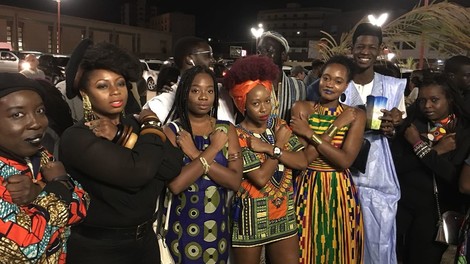Your podcast discovery platform
Curious minds select the most fascinating podcasts from around the world. Discover hand-piqd audio recommendations on your favorite topics.

piqer for: Global finds
Ciku Kimeria is a Kenyan author "Of goats and poisoned oranges" - (https://www.amazon.com/goats-poisoned-oranges-Ciku-Kimeria-ebook/dp/B00HBBWPI6), development consultant, adventurer and travel blogger (www.thekenyanexplorer.com). She writes both fiction and non-fiction focusing on African stories that need telling. She has worked on diverse pieces for various international and local publications including Quartz, Ozy, The East African etc. She has travelled to 45 countries – 16 of them in Africa. 153 countries to go and 63 territories!
"Of goats and poisoned oranges" has been extremely well received in Kenya and beyond. It tells the story of a Kenyan middle aged power couple and their complicated marriage. The novel explores issues of greed, revenge, betrayal and murder. It runs from the 1960s to 2013. It has been described as “Wicked, funny, poignant, wacky, human, a big ball of fun and danger”, “A unique and captivating book”, “Fun and intriguing”, “Impossible to put down once you start reading.”
She recently moved to Dakar, Senegal from Kenya to work on her second novel. She also works at as the Africa Communication Manager at a leading global strategy consulting firm.
She holds a B.S. in Management Science from MIT with minors in Urban Planning and International development studies.
Black Panther And Why Black People The World Over Are Embracing It
Black Panther has been a phenomenal success having raked in over $800 million to date. Even more impressive is how the movie has resonated with moviegoers worldwide for its wonderful, nuanced portrayal of an Africa that we never see in movies. The afrofuturism that the film draws on allows us to imagine Africa as it might have been had colonization not happened. This movie that has a black production team and whose actors are almost all black, celebrates Africa and blackness in a way that we have never seen before. Africans are loving it for a good reason.
In Ethiopia’s capital, Addis Ababa, the five daily screenings have been sold out at the sole theater showing the film. At the Accra Mall in Ghana, drummers came in beating out rhythms that heightened the crowd’s enthusiasm. In Lagos, my fellow Nigerians were decked to the nines in gorgeous wax prints and chunky jewelry. In Kampala, attendants graced a cocktail hour before the premiere at the Acacia Mall.
Wakanda is a technologically advanced country, but still one steeped in so much culture, vibrancy and history that Africa lovers such as myself can relate to. In this movie, development and progress is not measured in a eurocentric way, but in a uniquely African way.
For many Africans, the film brought to the big screen a reality that they see every day—the Basotho blankets the warriors used as a protective shield, the queen’s Zulu hat, the ochre-dyed locks of the Himba, the flowing fabrics of the Wolof. It was the sheer Pan-Africanism of it all that astounded me. The cinematic display of the diversity of Africanness was beautiful.
Wakanda and Black Panther will mean many things to many people, but will likely connect the most with black audiences worldwide. For me, one of the most exciting effects will be in destroying the myth that movies with minorities do not sell. I look forward to seeing many more positive images showing the Africa the world never sees.
